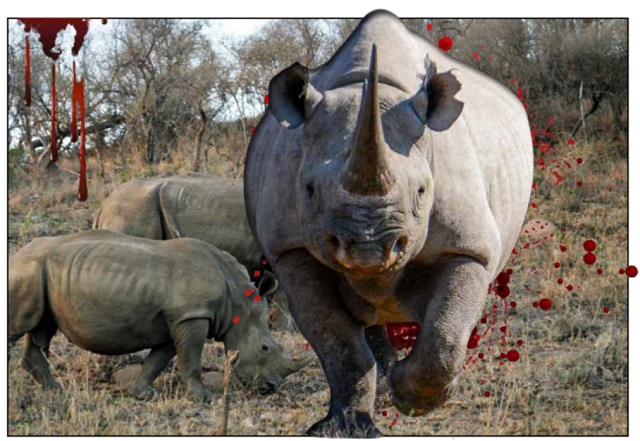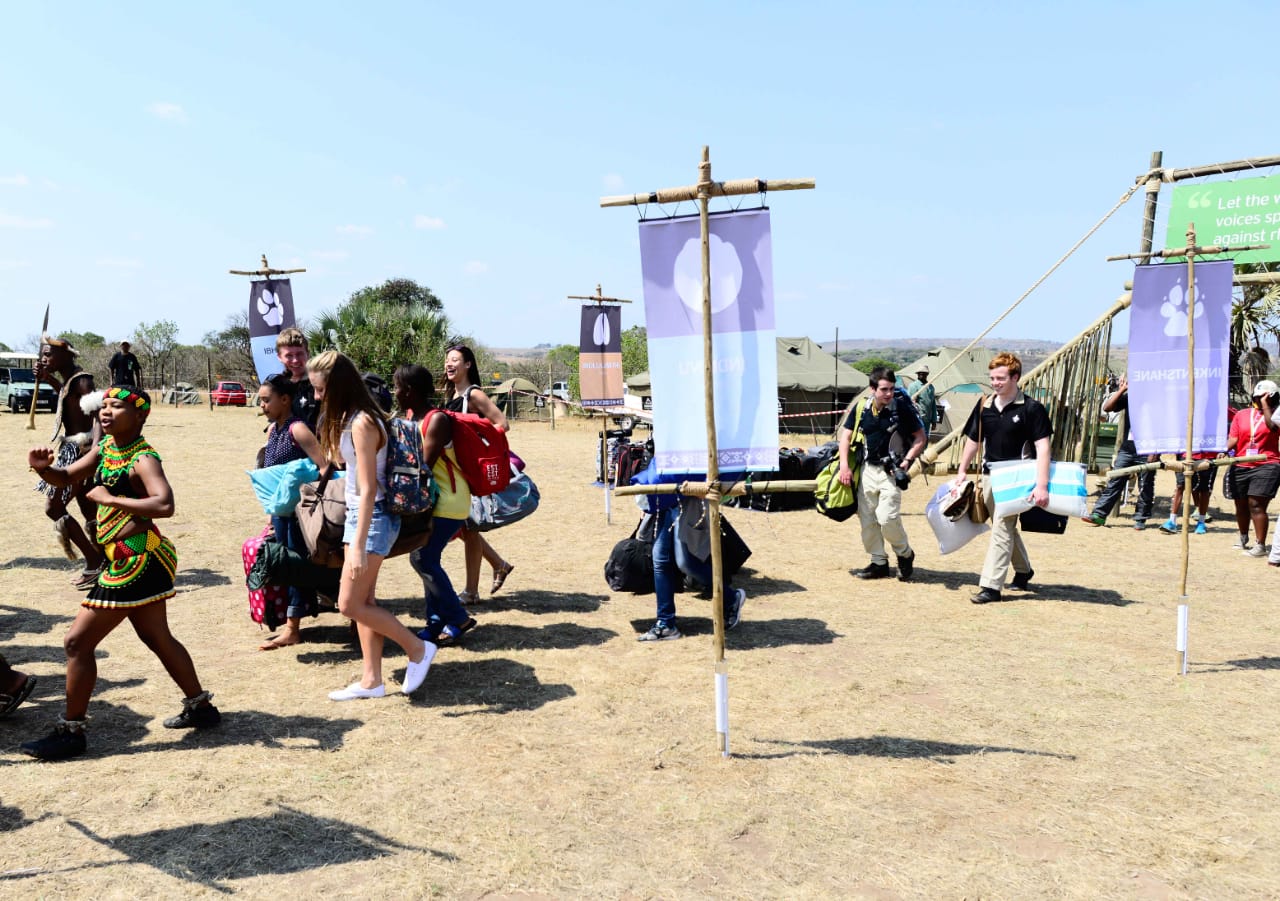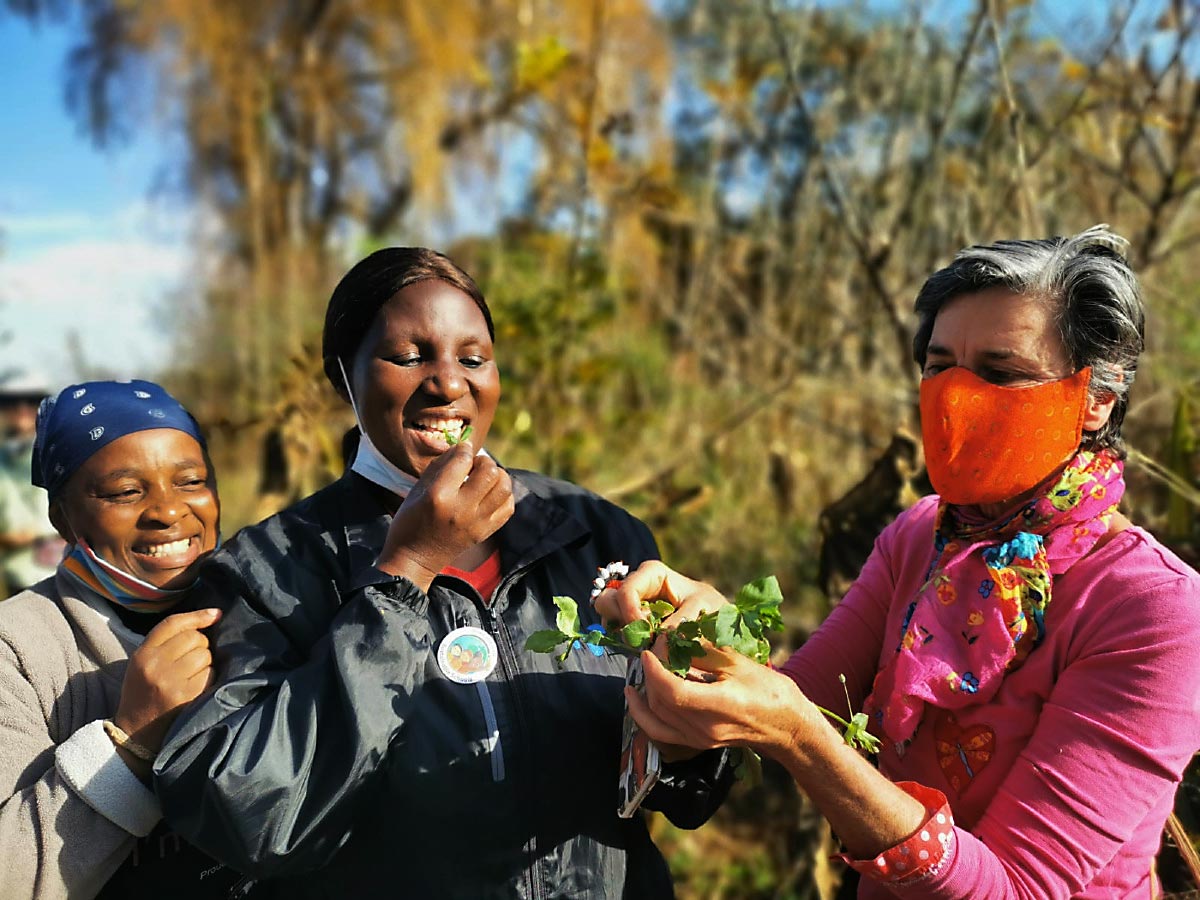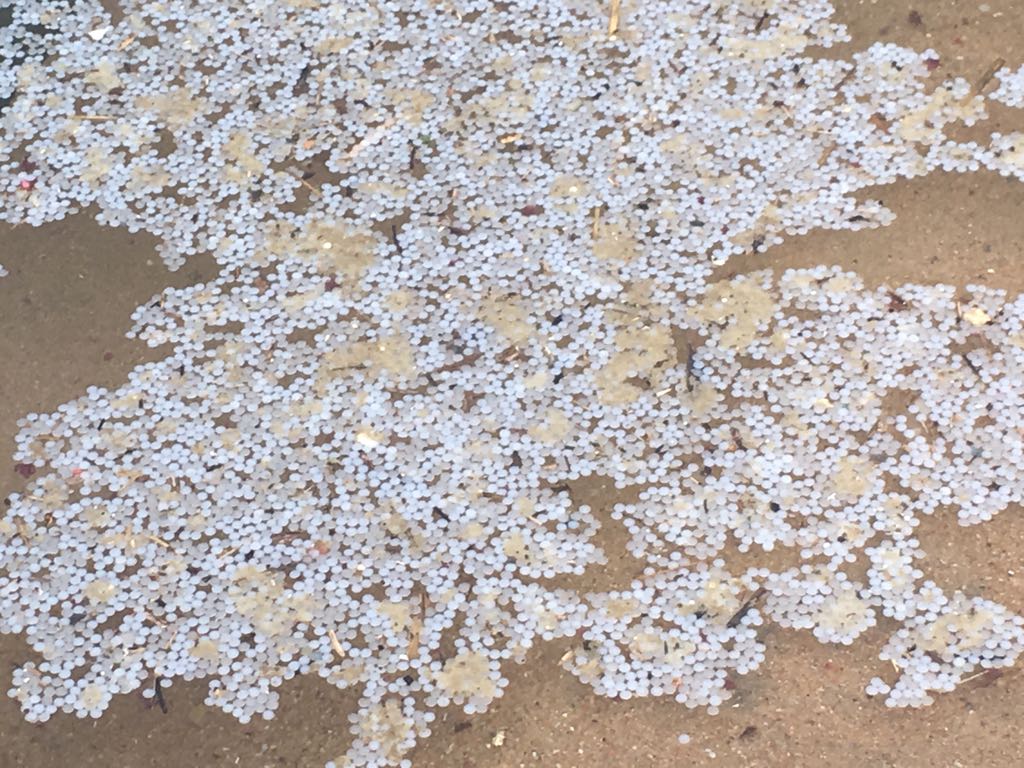Battle against bloodshed
Ezemvelo KZN Wildlife is under unfriendly fire, but latest arrests spark hope that the tide can be turned in combating rhino poaching. FRED KOCKOTT reports
Hyenas are getting fat and vultures flourishing in the Hluhluwe-iMfolozi game park – feeding off the carcasses of poached rhinos.
Such is the tongue-in-cheek comment from a senior Ezemvelo KZN Wildlife official, who, like, many others, has despaired at the huge spike in rhino poaching in the park over the past two years.
According to Ezemvelo, 118 rhinos were killed in the Park alone last year. So far this year, 194 rhinos have been poached in KZN, most of them in Huluhluwe-iMfolozi.
This week, though, marked a turning point that either could prompt authorities to get their act together in resolving the poaching crisis or see the world-renowned game park become a graveyard of once thriving rhino populations.
On Wednesday, the Zululand Observer reported that strides have been made in the fight against rhino poaching over the past weeks with the arrest of 23 suspects, including a woman, a correctional officer and a policeman.
The enforcement team, dubbed Rhino 8, comprises members from various disciplines of the South African Police Services, Customs and Excise, the South African National Defence Force, Ezemvelo KZN Wildlife and SANParks game rangers.
The team made the arrests in Hhluhluwe, Mkhuze and Pongola in KwaZulu-Natal, Calcutta, Skukuza in Mpumalanga and Lulekani in Limpopo.
“The arrest of these suspects should serve as a warning to other potential poachers that their chances of success in poaching is zero,” reads a police statement.
But wildlife activist and founder of Saving the Wild, Jamie Joseph, has argued that arrests often give false hope.
“Arrests mean nothing without convictions – and the conviction rate in KZN state parks is close to zero,” said Joseph, in her latest report: Rhino Massacres – Can Ezemvelo handle the truth?
“Hluhluwe-iMfolozi Park (HiP), once a global conservation success story for bringing rhinos back from the brink of extinction in the fifties, is fast becoming a graveyard and failure of epic proportions under the helm of Ezemvelo KZN Wildlife management,” said Joseph.
Working closely with rangers, Jospeh has been at the forefront of documenting and exposing how alleged corruption in the justice system is fueling poaching.
Her latest report contains shocking disclosures of what’s happening the ground.
Joseph said rangers in the Hluhluwe-iMfolozi Game Park had, on occasion, been ordered to stand down in the face of poachers.
“Right before their eyes, they have seen rhinos shot dead, and they did not react,” said Joseph.
She also cited an incident, a few months ago, when Park rangers were allegedly stopped by local police in Mkuze town.
“Information came through that they were working for an alleged syndicate boss known as “Mr Big”, carrying weapons and planning to hunt rhino at a private park. The informer said there was a .375 in the vehicle, and the police were paid off R30 000 to make the weapon disappear,” wrote Joseph.
In an earlier Facebook posting, Joseph wrote: “Brave and courageous Ezemvelo rangers are being forced to work alongside traitors, and, according to an internal report by Ezemvelo, certain police officers have allegedly been working with poachers that have killed rhinos in HiP.”
Her latest report provides damning statistics.
“Of the 162 rhinos killed last year in KZN, 118 were poached in HiP (Hluhluwe-iMfolozi Game Park), compared with 28 in 2015 – an increase of 320% – and it’s escalating. It will continue unabated until competent management is at the helm,” said Joseph.
“Whether it be corruption, or gross negligence and maladministration, senior management of Hluhluwe-iMfolozi Park is failing spectacularly to protect South Africa’s rhinos,” said Joseph.
Officially, Ezemvelo has closed ranks around the head of the Park, Jabulani Ngubane, labelling Joseph’s report as defamatory.
“It’s full of lies, and old stories. There’s no need for us to comment,” said Ezemvelo spokesman, Musa Mntambo. “If she (Joseph) has got any evidence, she should take it the police.”
Pelham Jones, CEO of Private Rhino Owner Association, said blaming Ezemvelo for the escalation of rhino poaching in KZN was neither wise nor helpful.
“Sure there are rotten eggs, as there are in SAPS and in any organisation. But there are also a lot of other factors at play,” said Jones.
Joseph’s report had an impact on the Durban chapter of yesterday’s week’s Global March for Elephant and Rhino.
Ngubane had been earmarked as the keynote speaker.
“It’s very sad. Jabulani (Ngubane) has withdrawn from the event,” said march co-organiser, Cath Jakins earlier in the week. “He has put in close on 20 years of incredible work, so we are stuck in the middle here, not knowing who to believe. We respect both Jabulani and Jamie (Joseph) for the incredible work they have done.”
A former Ezemvelo board member, who asked not to be named, said Joseph’s latest disclosures should be taken seriously, hopefully prompting effective and holistic solutions to the poaching crisis.
He said the fact that the Provincial Government had drastically cut Ezemvelo’s budget by almost a third over the past few years, did not make things easy.
“There are people doing some amazing work at Ezemvelo, including senior management and Cedric Coetzee (head of Rhino Security) but with budgets cuts like this, all the best intentions in the world, mean nothing.”
“The reality is that Ezemvelo is now so understaffed, our Protected Areas leak like sieves. Anyone with a real poaching intention can, with a little stealth and nous (practical intelligence) get away with it,” said the former board member. “And unfortunately, while there are still good people around, many staff are not committed conservationists. They are 8 – 4.30 desk jockeys.”
Several people connected with the Rhino 8 enforcement team agreed, saying
it was also obvious that information was being leaked from inside the park to highly-organised poaching syndicates.
“It’s a very disillusioning situation,” said one security expert. He said comments that hyenas and vultures were getting fat in feeding off rhino carcasses in Hluhluwe-iMfolozi Game Park went beyond tongue-in-cheek.
“It’s a fact. The number of rhino carcasses that poachers have left to rot in the wilderness amounts to a huge amount of food for scavengers.”
The question is: Can the tide be turned?
“Yes, it surely can,” said the former Ezemvelo board member. “There are some remarkably committed and resourceful people working at all levels, from top management through to rangers laying their lives on the line. They just need all the support they can get.”
Now read: Poverty drives poaching
These stories forms part of Roving Reporters’ Thin Green Line series supported by the Human Elephant Foundation.













